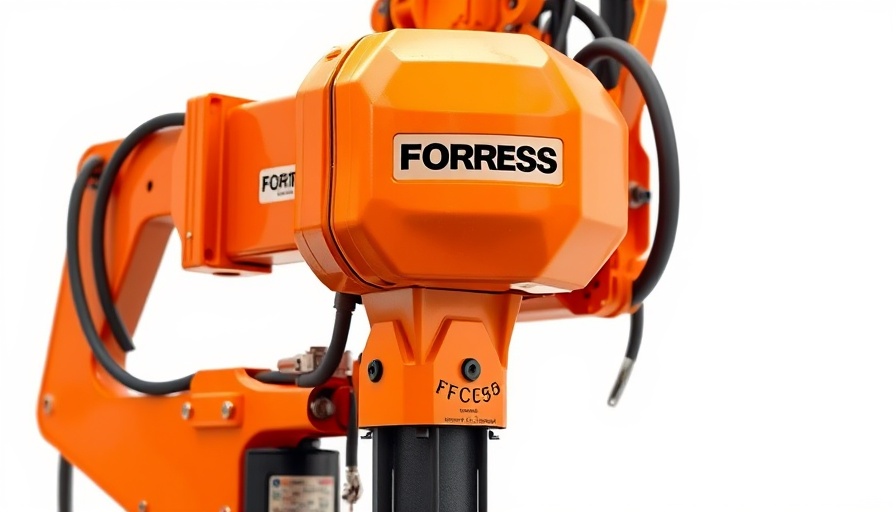
Heavy Tech: Pioneering a Shift in Construction Equipment
In a world increasingly concerned with sustainability and efficiency, Heavy Tech stands out as a beacon of innovation in construction equipment. Founded by engineer Michael Terzo in Fort Wayne, Indiana, the startup is dedicated to designing compact track loaders (CTLs) with a formidable hybrid powertrain. This commitment forms the backbone of their flagship product, the HT-2, which offers not only three powerful engine options but also a path towards zero emissions.
Why Hybrid Powertrains Matter in Construction
Hybrid vehicles have long been praised for their environmental benefits, and the construction industry is ripe for this transformation. Traditional diesel equipment may be reliable, but hybrid models tout significantly improved fuel efficiency, offering a compelling case for business owners prioritizing cost-effective yet sustainable solutions. Terzo emphasizes that his approach doesn't merely retrofit hybrid technology into existing diesel machines; instead, his team has designed the HT-2 from the ground up, allowing for enhanced fluid power efficiencies that optimize performance.
Embracing Modular Technology for Future Flexibility
The innovation doesn’t stop with improved fuel efficiency. Heavy Tech’s hybrid model features a modular E-Engine that can easily swap out the diesel generator for additional battery power. This modularity aims to make the HT-2 adaptable, converting it into a fully electric machine when required. As industries transition towards stricter emission regulations, this flexibility becomes not just beneficial but essential. Companies of all sizes will find themselves well-positioned by investing in technology that can evolve over time.
The Business Case for Heavy Tech's HT-2
Pricing is often a deciding factor for construction firms looking to upgrade their machinery. Heavy Tech estimates that the HT-2 will retail at $85,000, with a total cost of ownership projected at $97,250 over seven years. These figures suggest that transitioning to a hybrid model could be financially advantageous compared to traditional options, especially in a marketplace where current electric models can cost two to four times more. Terzo's clear call to business owners is to reconsider the value of investing in hybrid technology without breaking the bank.
Looking Ahead: The Future of Construction Equipment
As Heavy Tech prepares to launch the HT-2, the company not only exemplifies how technology can lead to greener construction practices but also sets a precedent for future innovations in the field. As energy costs rise and environmental regulations tighten, the ability of businesses to switch to cleaner, quieter, and more efficient machinery will likely become a business imperative.
In conclusion, Heavy Tech’s pioneering efforts in hybrid powertrain technology redefine what’s possible in the construction industry. For business owners and facility managers, staying ahead of the curve means not only embracing new technologies but championing sustainable practices that align with corporate responsibility. As we navigate the future of construction, let’s support innovations that lead to a cleaner, more efficient industry.
 Add Row
Add Row  Add
Add 




Write A Comment